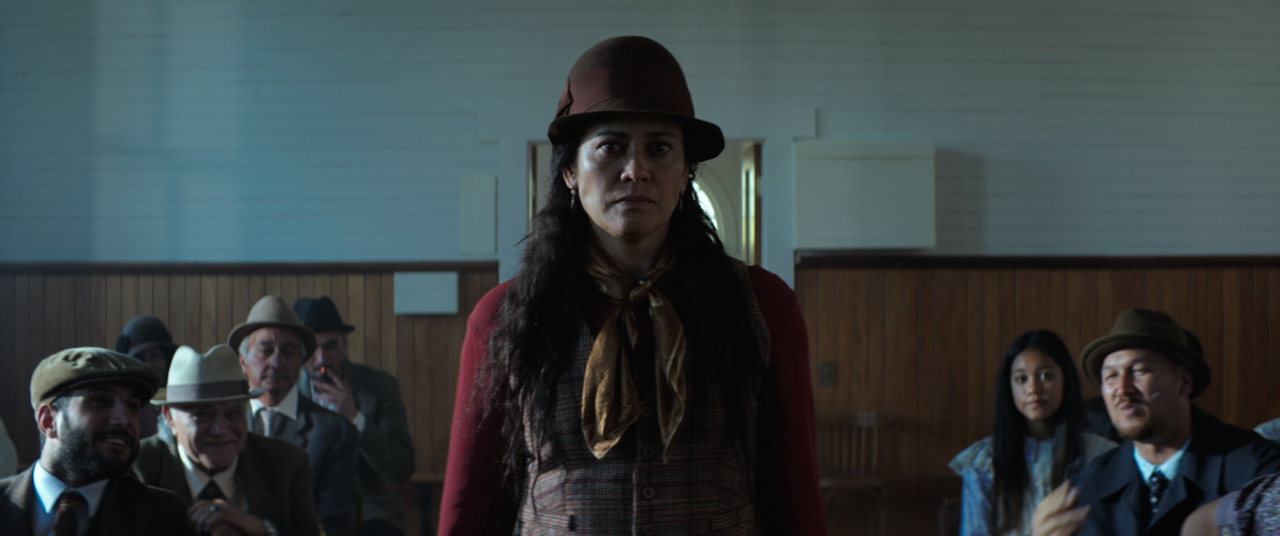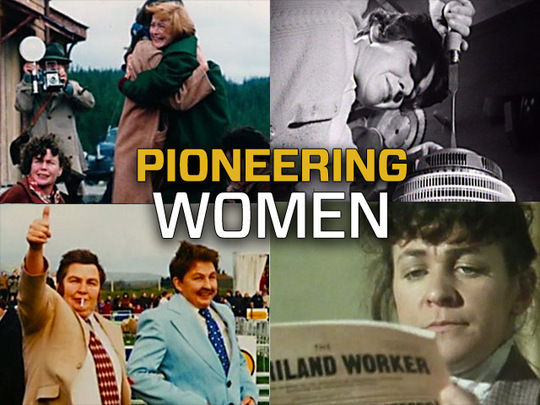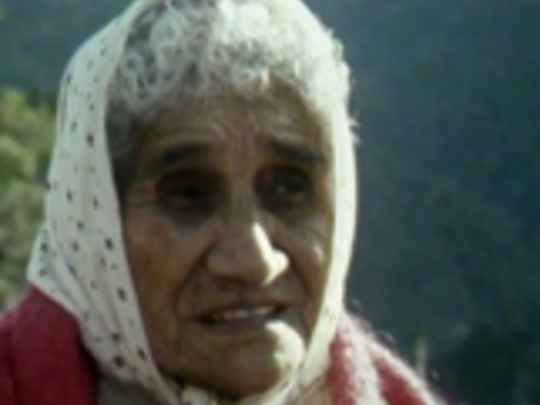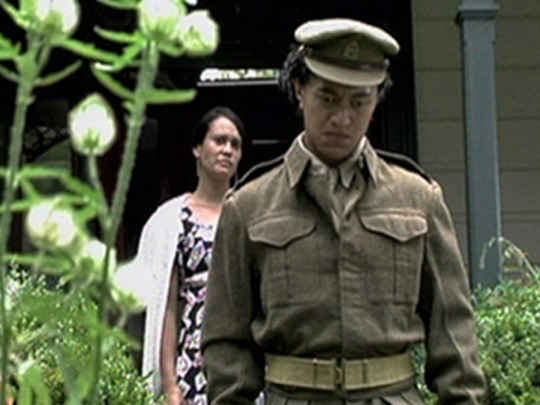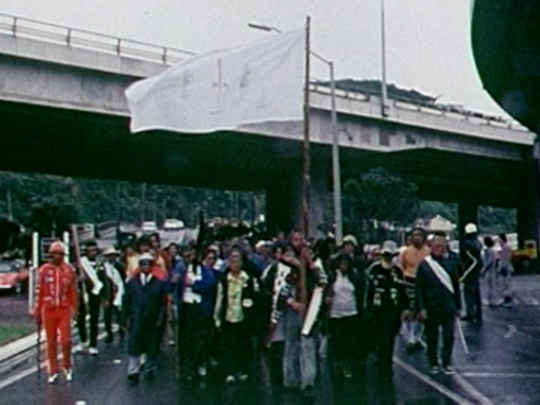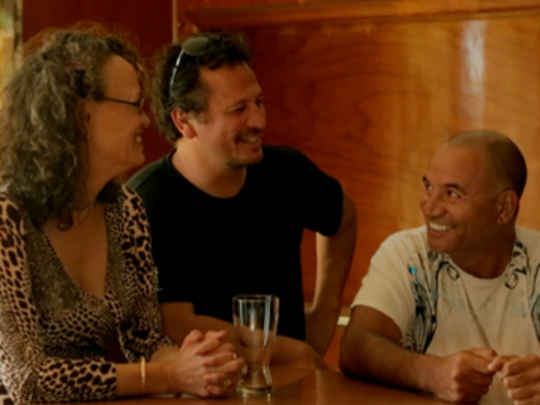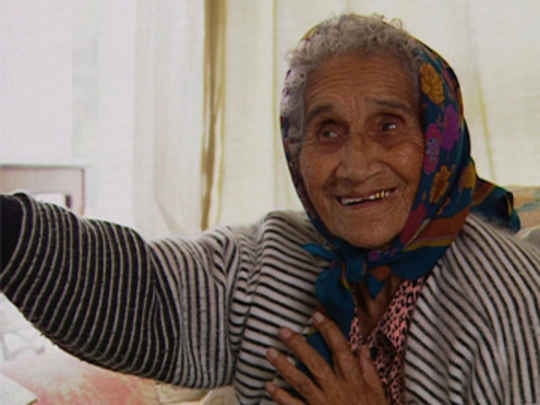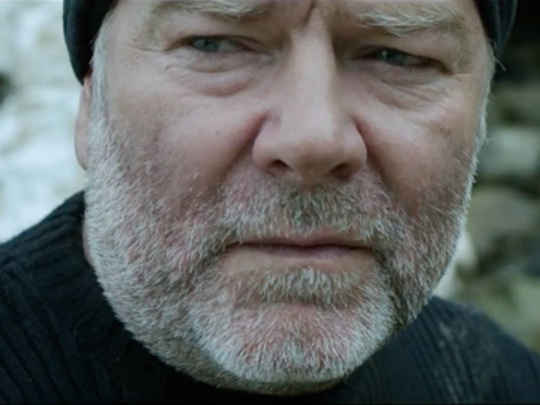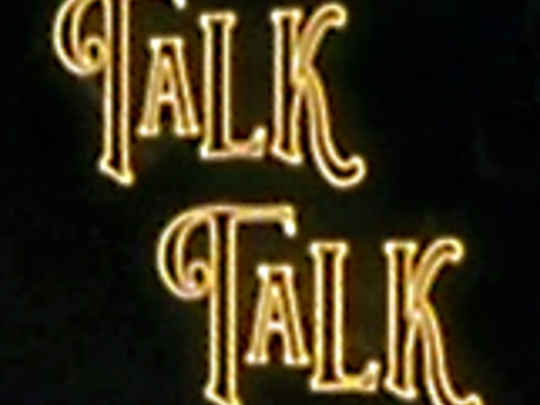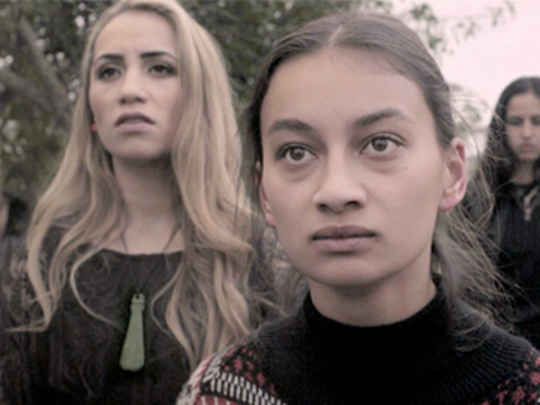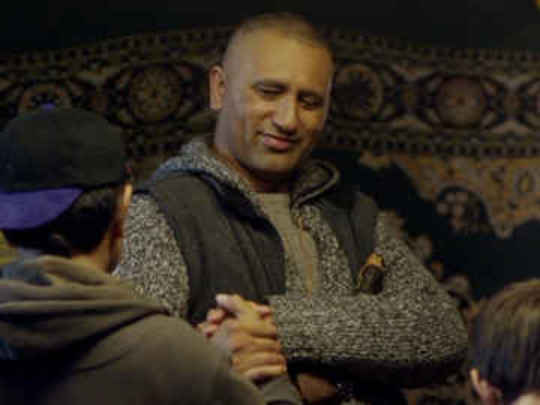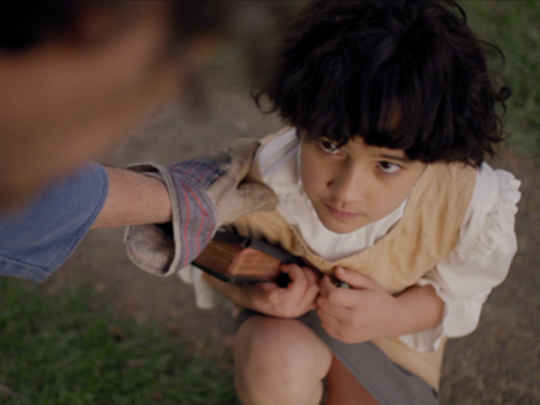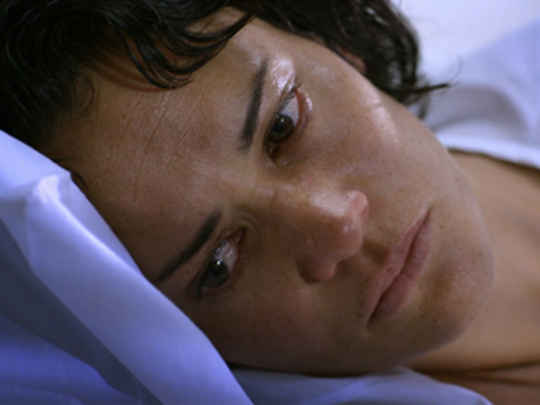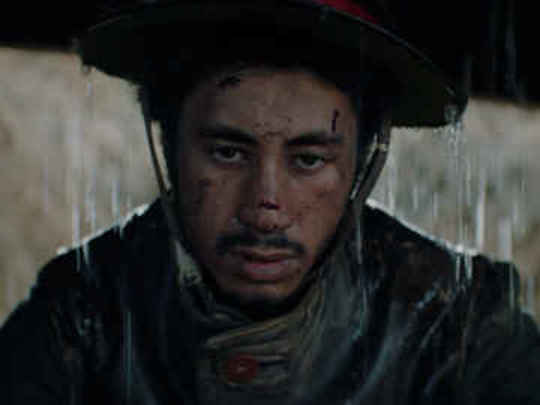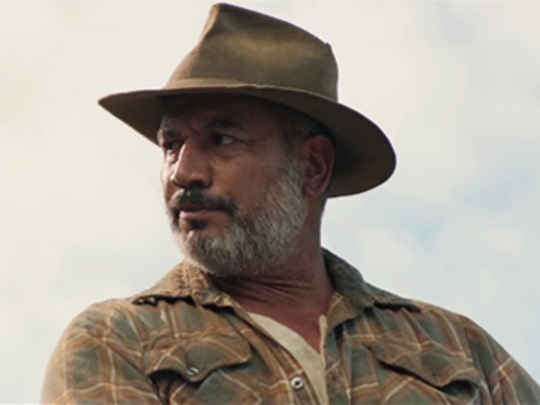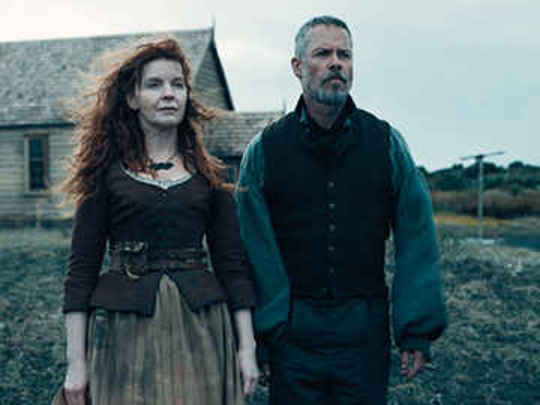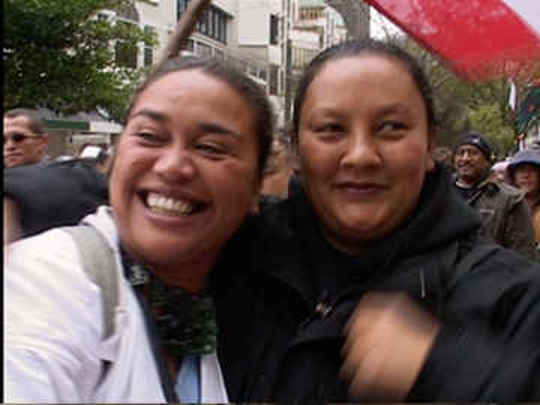No one hears us, Whaea. But when you speak, people listen. You could make our voices heard.
– Whina's Tai Tokerau whānau urge her to 'speak up' for the rights of Māori
Sometimes positions of power weigh heavily on the holder, do they not?
– Whina's priest (Erroll Shand) makes an observation
Not one more acre of Māori land!
– A key slogan of the historic 1975 Māori Land Rights march
...Dame Whina is this towering figure, so it's easy to forget the day-to-day struggles that she might have dealt with, and the challenges she had to overcome to do the things that she did. Those are aspects that I think anybody, when they see the film, will be able to relate to. The more we learned about Dame Whina, the more we were blown away by what she'd done and the life that she led.
– Writer and co-director James Napier Robertson on the life and character of Dame Whina Cooper, in a press release for the film
She had flaws, and we weren't afraid to address them...But we wanted to address them in a way that would allow the audience to feel compassion for the choices that she had to make.
– Writer and co-director Paula Whetu Jones on Dame Whina Cooper, in a press release for the film
Whina Cooper continued in public life, opening the Auckland Commonwealth Games in 1990. She told an international audience to remember 'that the Treaty was signed so that we could all live as one nation in Aotearoa'.
– Excerpt from a profile of Dame Whina Cooper, NZ History website
In 1975 a coalition of groups formed Te Rōpū Matakite o Aotearoa to combat further alienation of Māori land. They asked Whina to lead them. She accepted and proposed a march from Te Hāpua in the far north to Parliament in Wellington, to dramatise Māori determination to retain their land and culture, and to galvanise Māori and Pākehā support. Thus was born the Māori land march ... Whina, now in her 80th year, was not only a visible part of Māori history again: she appeared to be at the helm. For the hundreds of thousands of New Zealanders who witnessed the march on the roads or on television, its most inspiring feature was the wizened woman who headed it with such panache and articulated its objectives in a cracked but firm voice.
– Writer Michael King, in a 2000 profile of Dame Whina Cooper, The Dictionary of New Zealand Biography (found on website Te Ara)
